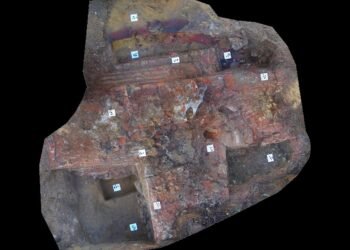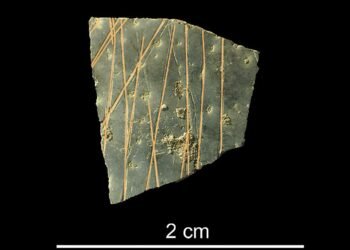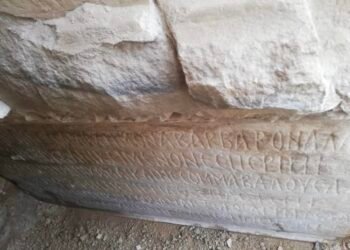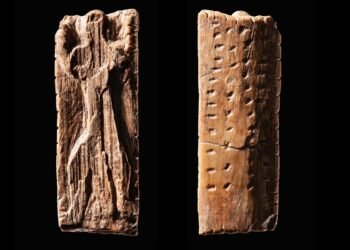Archaeologists in Italy have recovered a Roman funerary altar from the Torre riverbed in the municipality of San Vito al Torre, Friuli Venezia Giulia.

The monument, almost completely submerged in gravel, was fortuitously spotted by Ervino Silvestri, who promptly alerted the authorities. This led to a collaborative effort involving archaeologists from the ABAP FVG Superintendency, local law enforcement, and regional Civil Protection, among others, to safely excavate and transport the artifact.The recovery operation, conducted under the scientific direction of archaeologist Dr. Serena Di Tonto from the ABAP FVG Superintendency, lasted an entire day and involved meticulous planning and coordination. Natison Excavations company provided crucial logistical support, including heavy lifting equipment necessary for moving the 6.26-ton monument.
Despite its size and weight, the funerary altar is almost intact, with only the upper right corner showing signs of damage likely incurred in antiquity. It features an inscription referencing “gen Apinia,” suggesting a familial connection, and intricate decorations on its sides.
One side depicts a winged Erotes, a deity associated with love in Greek mythology, holding symbols of eternal sleep: an overturned torch and a poppy flower. The rear side, although rough-hewn and partially damaged, offers valuable insights into its craftsmanship and historical significance.

Preliminary examinations date the altar to the early Imperial Era (31 BCE – CE 476), indicating its importance within the context of Roman funerary practices. In addition to the funerary altar, other artifacts, including a stone funerary urn, limestone bases, bricks, tiles, and a limestone face, were discovered in the vicinity.
The artifact will undergo thorough scientific study and restoration before potentially being exhibited to the public.























